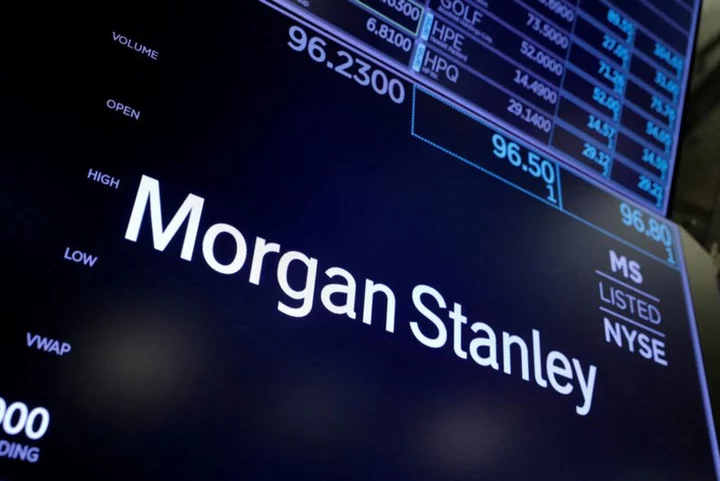By Tatiana Bautzer and Lananh Nguyen
NEW YORK Wealthy clients going to a Morgan Stanley banker to discuss their investments may soon have a different sort of experience: having a chatbot listen to their conversation.
After testing it with 1,000 financial advisers for some months, the bank will roll out a generative artificial intelligence bot this month, developed with the makers of ChatGPT, OpenAI. The details of the program have not yet been reported.
With clients' permission, the bot will eventually create a meeting summary of the conversation, draft a follow-up email suggesting next steps, update the bank's sales database, schedule a follow-up appointment, and learn how to help advisers manage clients' finances on areas such as taxes, retirement savings and inheritances.
Bankers, meanwhile, can use the chatbot to quickly find research or forms instead of sifting through hundreds of thousands of documents.
"The impact (of AI) will be very significant," potentially comparable to the advent of the internet, said Sal Cucchiara, Morgan Stanley's chief information officer of wealth and investment management, who is among the executives driving the bank's push into AI.
Cucchiara, tasked with constantly scanning Silicon Valley for potential tech vendors, met OpenAI executives in 2022, before fast-growing app ChatGPT got mainstream usage.
"It quickly became clear we needed to partner with them, they were far ahead of everybody else," he said.
Andy Saperstein, Morgan Stanley's co-president and head of wealth management, then flew to California to discuss a partnership with OpenAI CEO Sam Altman and Boris Power, a technical staff member at the company.
They signed a deal last summer in which Morgan Stanley has preferred access in product development for wealth management. Executives from the two companies celebrated over a dinner hosted by Saperstein, a candidate to become the bank's next CEO.
OpenAI declined to comment.
While the bot will give insights and administrative support to financial advisers, investment advice will remain the purview of humans.
"The adviser is still at the center," said Cucchiara. For now, employees view the technology as a helpful tool and aren't worried that they'll be replaced by bots, he said.
WEALTH RACE
The AI initiative is part of Morgan Stanley's strategy to drive its wealth division, where net revenue surged 16% to a record in the second quarter and new client assets grew $90 billion.
CEO James Gorman, who has spearheaded a series of major deals that funneled more money into the wealth business, aims to reach $10 trillion in assets under management.
Morgan Stanley is not alone in its AI efforts. While banks already use AI to crunch numbers, detect fraud and analyze customer transactions, Wall Street giants are developing more sophisticated uses of generative AI that is capable of generating text, images and other data.
JPMorgan Chase named Teresa Heitsenrether its chief data and analytics officer in June to lead AI adoption across the largest U.S. lender. Rival Bank of America's virtual assistant, Erica, has had more than a billion interactions with clients since it was introduced in 2018.
Elsewhere, Moody's Analytics is also working with OpenAI and Microsoft to develop a research assistant that can be used by clients, said Nick Reed, its chief product officer.
Large banks are the most advanced among financial firms in their adoption of AI, but asset managers, traders and insurers are also deploying it, said Michael Abbott, global banking lead at consulting firm Accenture.
"We're beginning to see customer services led by artificial intelligence spread among the largest banks," said Abbott, who is working on hundreds of case studies with lenders looking to use AI.
(Reporting by Tatiana Bautzer and Lananh Nguyen in New York; editing by Megan Davies and Nick Zieminski)

